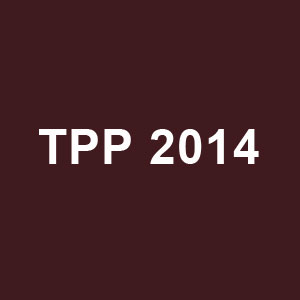‘HEGEL SAYS’: ventriloquising the word (of) ‘HIM’ with Anne Carson’s Antigonick.
Anne Carson’s recent ‘translation’ of Sophokles Ancient tragedy – enigmatically retitled Antigonick (Carson 2012) – can be read as a contemporary feminist coup de théâtre, and constitutes an important case study in the emergent field of Performance Philosophy. Here, the theoretically foundational figure of Antigone literally and dramatically speaks back in defiance, not only to the tyrant Kreon, but also proleptically to that most (in)famous of her modern interpreters: Hegel, whose reading, as Judith Butler has noted, ’continues to structure appropriations of the play within much literary theory and philosophical discourse’ (Butler 2000: 3-4). For Hegel, the lesson of Sophokles’ tragedy is that a dialectical struggle between Antigone and Kreon, woman and man, family and state, is resolved in a ‘sublation’ beyond the antinomy between these two characters or moments, which themselves remain lacking in ethical consciousness. Carson’s Antigone sets out to rewrite her own story, challenging the dominant hegemonies of interpretation in which, as she notes, ‘HEGEL SAYS I’M WRONG’. This self-conscious, self-referential and temporally paradoxical translation of the figure performatively defies Hegel’s theoretical legislation as much as Kreon’s imposition of a state law forbidding the fulfilment of the desire to bury and mourn a loved one. In the translation and its public performances (including a 2013 reading at NYU, in which Butler played the role of Kreon), Carson and her Antigone turn Hegel’s reading on its head. In place of the ‘effacement’ of Antigone’s name and words that Butler has identified in the Phenomenology, here the figure enacts something like what Catherine Malabou has theorised as ‘ventriloquism’: ‘ways of making Hegel speak… the presence of one’s voice in the other’s body, the conquest of one’s own self as an act of robbery of the other’s identity’ (Butler & Malabou 2011: 613). What Carson, Butler and Malabou all pursue – albeit in divergent ways – is far from a simplistic dismissal of Hegel’s philosophy as misogynist, statist or overly teleological, but rather a necessary thinking beyond these reductive readings: a challenging and deconstructive ventriloquisation of his words and his theoretical shape; what might be thought of as a ‘restaging’ of his thought for our times. Philosophers have sought to understand Antigone; the point, however, is to translate her, where this translation is always an enactment of transformation. These three feminist thinkers seem to suggest that the same may be true of Hegel, with whose own performative philosophical utterances we continue to wrestle today.
Ben Hjorth is an artist and researcher working in and between theatre, performance and philosophy. Alongside work as director, dramaturg, performer and writer, he is a PhD candidate in the Philosophy department of Monash University, under the supervision of Andrew Benjamin. His current research focusses on the development and status of the concept of mimesis, from Plato and Aristotle, via Kant and Hegel, through to contemporary post-structuralist and psychoanalytic discourses and performance practice. His article, ‘WE’RE STANDING IN / THE NICK OF TIME’: the temporality of translation in Anne Carson’s Antigonick’ is forthcoming in the journal Performance Research (19.3). He hold a Bachelor of Dramatic Arts from the Victorian College of the Arts / University of Melbourne, and a Bachelor of Letters with Honours (Comparative Lit / Cultural Studies) from Monash University.

